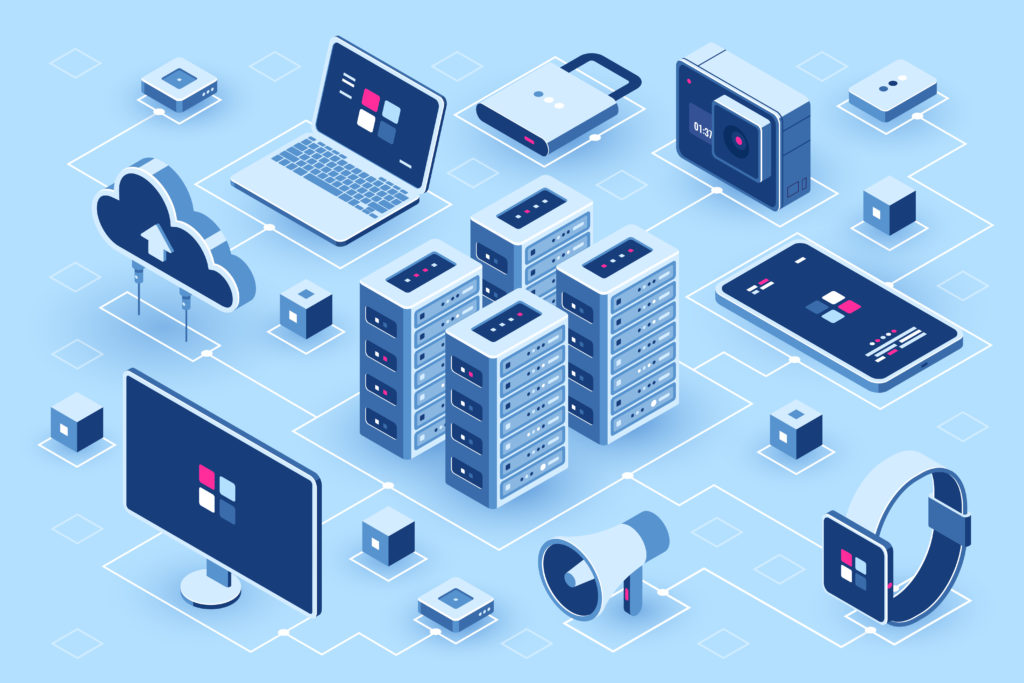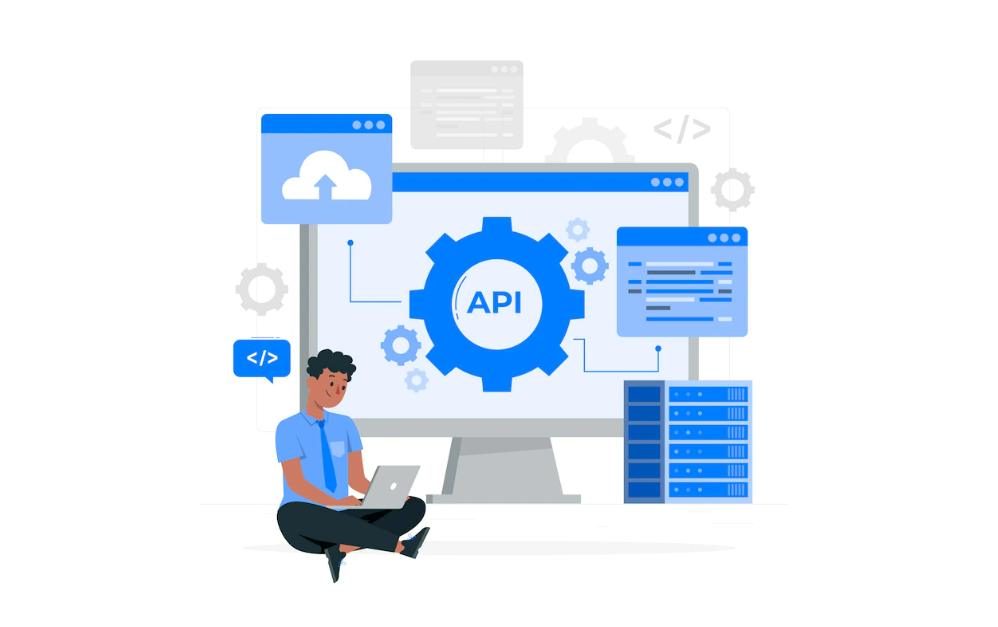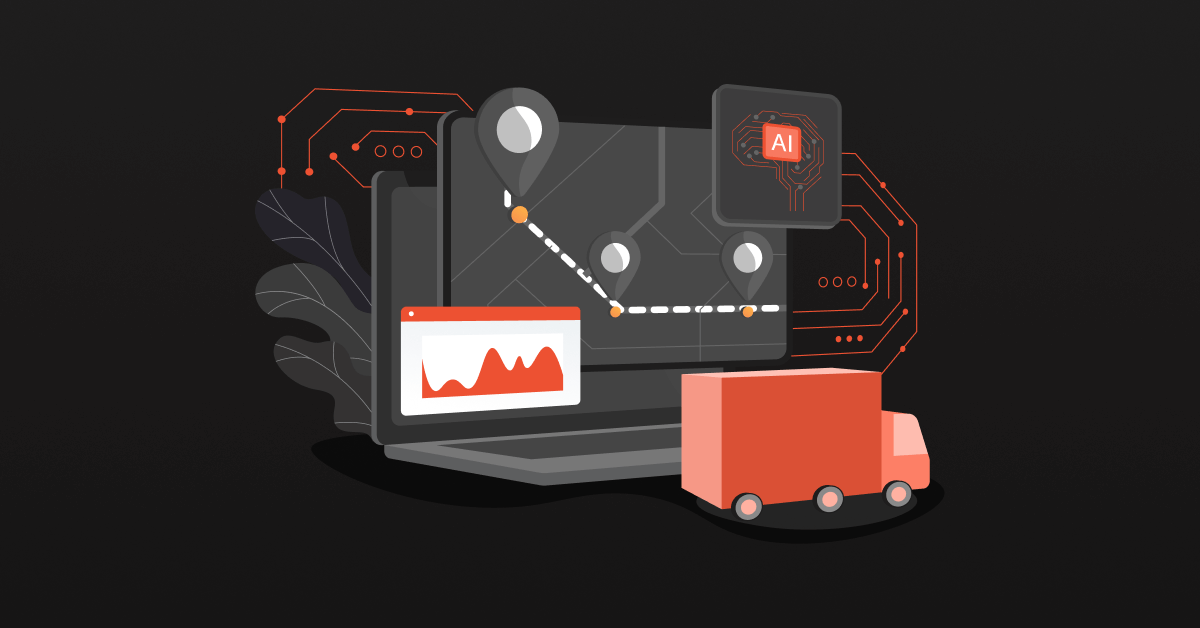Today’s eCommerce business requires data from multiple locations to function optimally. These data destinations can include web-based data sources, customer data, product data, order data, financial data and even supplier data. The importance of data and analytics cannot be understated. Data helps you understand what works and what doesn’t. This information can then be used to improve your business as a whole.
Gartner predicts that 60% of B2B sales organizations will transition to a data-driven sales approach by 2025.
However, integrating all of this data into a cohesive system is not easy – and can even be quite challenging. Through strategic integration, businesses can better understand their customers and identify new marketing opportunities. Not only do custom data connectors or web data connectors make business applications more efficient, but they can also help businesses automate processes and work faster.
But is it easy to connect data from multiple sources by ensuring data security?
Data integration solutions can be a daunting and time-consuming task. It’s also important to avoid data fragmentation – having information spread out across multiple systems makes it difficult to analyze and use. To make data integration a success, businesses need to establish clear boundaries between business functions and ensure that data is properly mapped from different sources. And finding a data connector can solve your data integration technical challenges, ensuring security across platforms.

Contents
What is A Data Connector?
Data connectors are among the most powerful tools available to an eCommerce business looking to make the best use of commercial data to increase sales, profitability, and data-driven operations. And with cloud-based systems now well within reach, it’s never been easier for business owners to leverage data for maximum impact.
Data connectors are integration tools that can be used to integrate disparate data sets. They are designed to help you connect external data sources with your online store. By connecting your inventory, customers, and orders from within your favorite eCommerce platform with commercial data like direct mail lists, loyalty programs, etc., you can easily find new ways to improve your customer experience and optimize your eCommerce business through Ecommerce connectors for success.
By integrating data from different locations, you can create powerful models that can help you make predictions and perform faster analytics.
Read More: How Do ERP Connectors Benefit Businesses?
There are many different types of data connectors, each with its strengths and weaknesses. Here are some of the most popular types:
SQL connectors: These are used to connect to databases and run queries. They are very powerful but can be complex to use.
NoSQL connectors: These are used to connect to non-relational databases. They are simpler to use than SQL connectors but don’t have as much power.
API connectors: These are used to connect to web services and retrieve data. They are relatively simple to use and can be very flexible, but they may not always provide access to all the data you need.
File connectors: These are used to connect to file systems and read or write data. They are very straightforward to use but only work with local files.
Among these different types of connectors, API Connectors or API-based integrations stand out.
Why is API Integration the Best?
API integration is necessary for a variety of reasons. By integrating with an API, you can dramatically reduce the time it takes to perform common tasks. Not only that, but APIs also allow third-party developers to build custom applications that interface with your business seamlessly. If you’re looking to gain more control over your data, or want to interface with multiple systems, an API is a perfect solution!

Here are some of the top-notch benefits of API integration:
Seamless Communication Between Cloud Apps
Cloud-based platforms offer businesses a seamless way of communicating and working with different cloud apps. This allows for better coordination and management of resources across various industries, as well as automation of various processes and tasks. APIs can also help businesses to develop new products or services quickly and easily.
Recommended Reading: Why Ecommerce Automation Is The Next Big Thing For B2B Distributors
Ease and Speed Up the Building of New APIs
API integration platforms can help you to easily and quickly build new APIs. They make it easy to find the right platform and supplier for your needs, streamline the process, and provide automation of most tasks involved in API development – from design to deployment. The time needed to get started with developing an API is also reduced. Overall, they offer several benefits that can benefit your business.
Integrate Legacy Apps
Integrating legacy apps into your web app can help you reduce development time and costs, improve customer experience and engagement, increase scalability, manage data growth, and create a single platform to manage all your business needs. Additionally, integrating legacy apps can speed up innovation processes.
Reduce Revenue Loss Due to Integration Issues
Integrating an API into your business is a critical process that can help reduce revenue loss and integration issues. By using platforms, you can speed up the process and save on costs associated with integration. They also provide visibility into your data which can help make better decisions. And lastly, they safeguard your data from unauthorized access – essential for any business.
Enable Creating New Apps Faster
API integration platforms offer businesses a range of benefits that can help them automate their processes and improve efficiency. They also provide a secure platform for companies to share data with other business partners in an efficient manner. By integrating with an API integration platform, your business can create new apps much faster and more easily than ever before. And finally, staying ahead of the competition is easy by keeping up-to-date on the latest trends in the industry through API integration platforms.
Boosts Team Productivity
Team productivity can be boosted by using an integration platform that helps you share and access data from different sources. This way, everyone in the team is up-to-date with the latest industry developments and can work more efficiently as a result. Automating processes will also help to improve communication within your company while providing a single point of access to various data streams ensuring security and privacy are maintained.
Enhance Scalability
Businesses need to be able to scale their operations to remain competitive. By integrating with various API integration platforms, businesses can achieve this goal efficiently. This is because these platforms make it easy for them to connect with different third-party services and applications.
Moreover, by expanding the functionality of their platform, these providers also help businesses deploy custom applications that can improve business efficiency and save costs on related operations. In addition, API integration platforms allow companies to interface with customers from all corners of the world instantly.
Relevant Reading: B2B APIs: Why Distributors Should Consider ERP-To-ERP Integration
Experience Low Code API Integration with DCKAP Integrator
Choosing the right data connector or integration platform is crucial to streamline consistent data flow across multiple data channels. Here’s how DCKAP Integrator helps you achieve it.
DCKAP Integrator API is flexible enough to accommodate all your complex business needs. DCKAP Integrator takes the pain out of connecting ERP with your eCommerce, CRM, PIM, SCM, and other systems.
Data from various systems should be synchronized to acquire real-time insights into:
- Customer Data
- Marketing and sales funnels
- Offline and online orders, transactions, invoices
- Inventory quantities and availability
- Product descriptions, details, SKUs
- Pricing including dynamic and library
- Suppliers
Here is the top Integration Module that helps you ensure seamless data flow:
Pre-Built Connectors: A pre-built connector that helps you connect to a variety of sources and automate data flows.
Multi-Platform Integration: Allows you to connect your business system with various third-party platforms with simple, yet sophisticated flow designers and pipe builders.
Well-Built User-Interface: The user interface of most integration modules is well-designed and easy to use. This makes it easy for you to connect to your data warehouses without manual coding.
Advanced Mapping & Modifiers: Helps you to map data from different sources into a common structure, making it easier to transfer data through fields connection logic. It also offers powerful modifiers that can make data analysis and reporting much easier.
Flexible Schedule: Whether you want your systems to follow a schedule or need real-time data synchronization, schedule your tasks to run at a flexible time for you.
Similar Reading: ERP Integrated Solutions: Boost Business Agility & Visibility
Should You Build or Use a Pre-Built Data Connector?
Building a custom data connector is an important step in integrating different databases and tools into your business. However, there are many pre-built connectors available online that can help you do just that. It is important to decide which type of connector will work best for your business – whether it’s for marketing, sales, or CRM purposes. Once you have chosen the right one, installation can be easily done by following the instructions provided!
5 Reasons Why Pre-Built Data Connectors are the Best Option
Data connectors are a great way to gather data from different sources quickly and easily. They’re a fast, simple, and affordable way to connect to various data sources, making them the perfect solution for any business. Plus, data connectors are flexible – you can use them with any kind of data source. So, whether you’re looking to connect your ERP, eCommerce, social media, email, and streaming services, or just need to gather data from a few different systems, data connectors are the perfect solution. Don’t wait – start using data connectors today!
Significant Cost-Savings
Data connectors are a type of software that allows you to connect different database systems. This technology can save your organization significant cost-savings in time and resources. Connecting different databases allows analysts to access the information they need. Additionally, data connectors make it easy to share data across departments within an organization. So, not only do they save you time, but they also save you money. It’s time to start exploring data connectors and see the amazing cost savings they can provide for your business.
Faster Results
Data connectors are essential in today’s business world. They allow you to connect different data sources for faster results. This can be used for merging data from multiple sources into a single table or database. This makes it easy to track and analyze your marketing campaigns, customer data, and more. Additionally, data connectors can be used for automating processes within your business. So, whether you’re looking to increase efficiency or get a better understanding of your data, data connectors can help you reach your goals.
Rapid Scalability
Data connectors are essential for businesses that need to quickly exploit big datasets. They’re a type of AI tool that allows for quick and easy integration of data sources. This makes them perfect for businesses that need to connect to multiple databases and systems. Connectors can also be used to create dashboards and reports, which makes them ideal for data analysis purposes. So, if you’re looking to scale your business quickly and efficiently, then data connectors are the perfect solution.
No Maintenance Required
Data connectors are tools that allow you to connect to different data sources to take advantage of the power of AI. They can be used for a variety of tasks, like building collated reports or automating processes. Because data connectors are easy to use, they’re perfect for users who don’t have technical expertise. There are many different types of data connectors available on the market, so find one that’s right for your needs!
Strategic Nimbleness
Data connectors are essential for digital marketers who want to stay ahead of the curve. They allow you to connect and share data with other people or systems, which can be used for a variety of purposes. By connecting data sources, you can automate tasks, find trends, and track performance. To be strategically nimble, you need to be able to quickly adapt to changing circumstances. This will enable you to stay ahead of the competition, and ensure that your campaigns are as effective as possible.
How Do Data Connectors Benefit Businesses?
Data connectors are important for businesses of all sizes because they allow them to connect with external data sources. This allows businesses to collect and analyze large amounts of data in a matter of minutes. This can be used for a variety of purposes, from developing new products or services to improving customer experience. By using data connectors, businesses can reduce the time needed to develop new products or services and improve their overall business efficiency.
Data connectors enable businesses to acquire a 360 view of their data
Thanks to data connectors, businesses can now acquire a 360 view of their data to make informed decisions and improve their performance. This enables them to better understand customer behavior, uncover potential problems early on, and optimize operations across the board.
Beyond analytics alone, data connectors also enable businesses to interact with customers in new ways – for example, by providing real-time insights into customer sentiment or even responding quickly to complaints. As the world becomes increasingly digitized, all business sizes need to have access to reliable data connectors so that they can keep up with the latest trends and developments.
Helps Sales Team To Visualize Customer Pain Points
To be successful in sales, you need accurate customer data. By using this information, you can better understand your buyers and prospects and target the right ones with more relevant offers. Additionally, knowing what’s going on with your customers can help streamline your sales processes overall- allowing you to identify potential issues earlier on so that they don’t turn into bigger problems down the line.
Furthermore, having access to robust customer data lets you measure key metrics such as churn rates or lead conversion rates- all of which are essential for improving business performance. So make sure that you’re integrating it into your marketing strategy wherever possible- it will pay off!
Data connectors can integrate with other Business Intelligence tools
Data connectors can help businesses to get a better understanding of their data. They connect different business intelligence tools so that you can easily integrate the data from these sources, making it easier for you to understand and make informed decisions. This enables you to take action based on the information that’s available which often leads to improved efficiency and effectiveness in your business operations.
Data connectors improve productivity
Data connectors are a type of software that helps improve productivity by connecting different systems. By integrating data from different sources, such as CRM (customer relationship management), ERP, PIM, and other analytics tools, etc., you can create a more holistic view of your business performance- something that can be immensely useful in making informed decisions about future course corrections or expansion plans. This makes it easy to access data from multiple sources, and use it for various tasks. For example, you can use data connectors to move data between systems quickly and easily. This can save you time and energy, and help you get the most out of your data.
Data connectors allow companies to make data-backed predictions
Data connectors are powerful tools that allow companies to make data-backed predictions. This can be helpful in several different ways, including marketing and business decision-making. There are many different types of data connectors available, so it’s important to choose the one that best suits your needs. For marketing, data connectors can be used to track customer behavior and predict future needs. For business decision-making, data connectors can be used to assess current performance and make predictions about future trends. So, whether you’re looking to improve your marketing efforts or make better business decisions, data connectors can play a crucial role.

Choose the Right Data Connector to Ensure Automated Bidirectional Data Flow
Integrating data from multiple sources is essential for eCommerce businesses. By doing so, you can create a more holistic picture of your customers and make better decisions. For that, data connectors are essential, as they allow you to quickly and easily connect different data sources to make better business predictions. Not only are data connectors fast and efficient, but they also save you money in the long run.
So, what are you waiting for? Get in touch with DCKAP Integrator for technical support & start integrating data from different sources today and see the difference it makes for your business!




